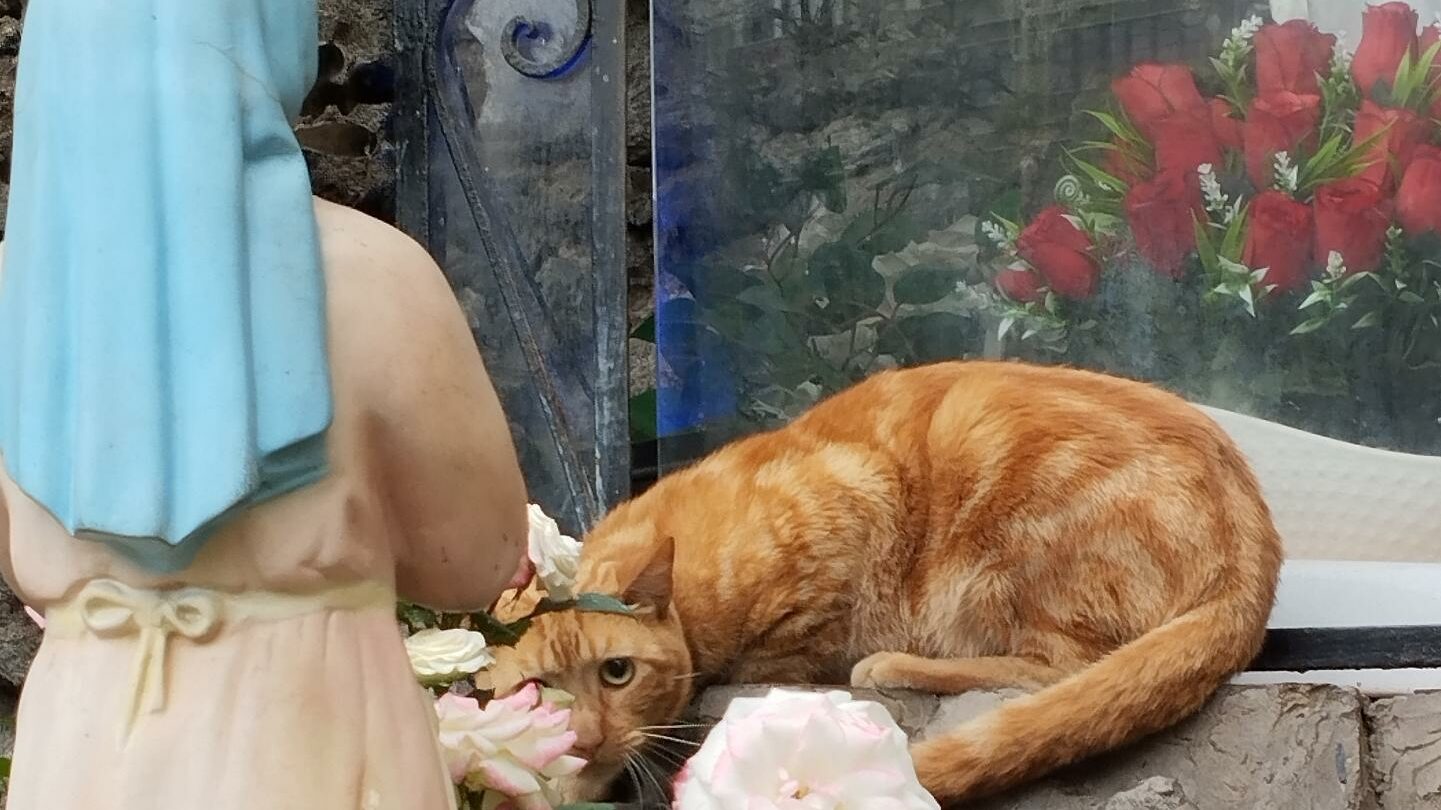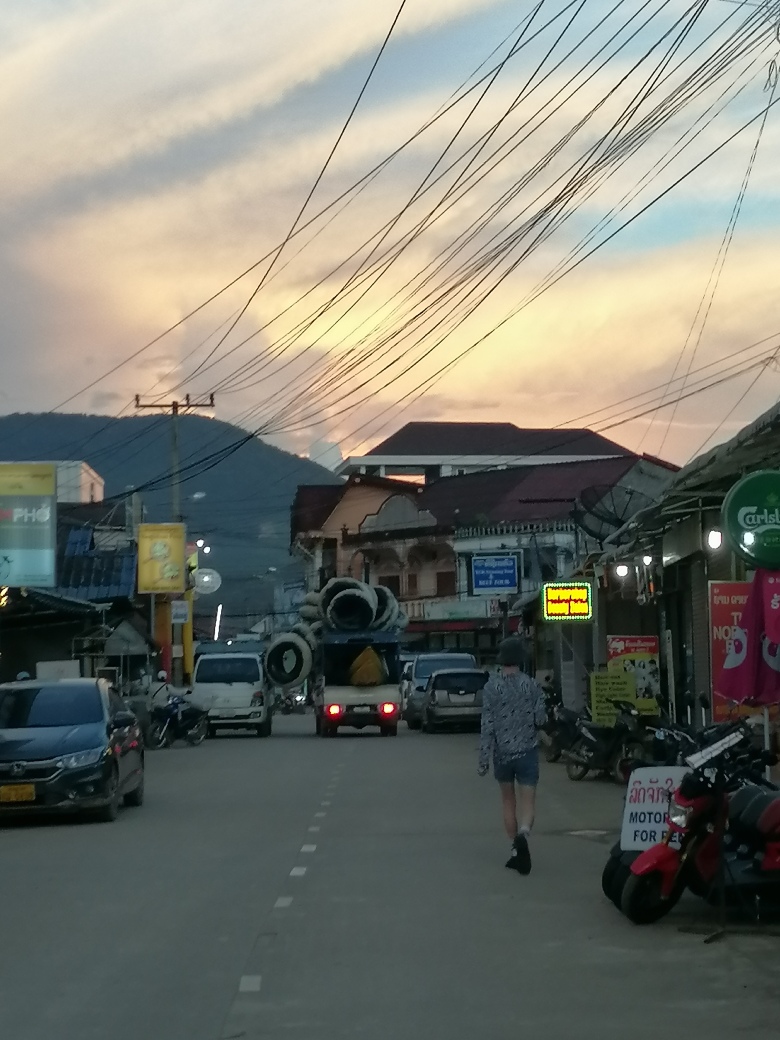The last time I was in Laos, I was locked out of China due to Covid, floating around SE Asia with only the clothes that I had in my backpack, trying to teach online for two months. Bathing suits, mind you, do violate the school dress code. That’s when I began a short stint in Kuala Lumpur to join a few other misplaced teachers and to borrow some khakis. After a few sweltering weeks, I returned to Laos, thinking I’d be allowed in China soon. But that never happened. I stayed in Vang Vieng until I had to evacuate the country, one of the more traumatic moments of my life, the airport insane as the country went into lock down, grown folks begging with ticket agents to board planes.
Those were the insane days when COVID wasn’t under control and the only vaccination was drinking a bottle of bleach.
Now that the face masks and nose jabs are behind us, I decided to return to Laos, thanks to the bullet train between Kunming and Vientiane, and the delightful hop skips and jumps between.
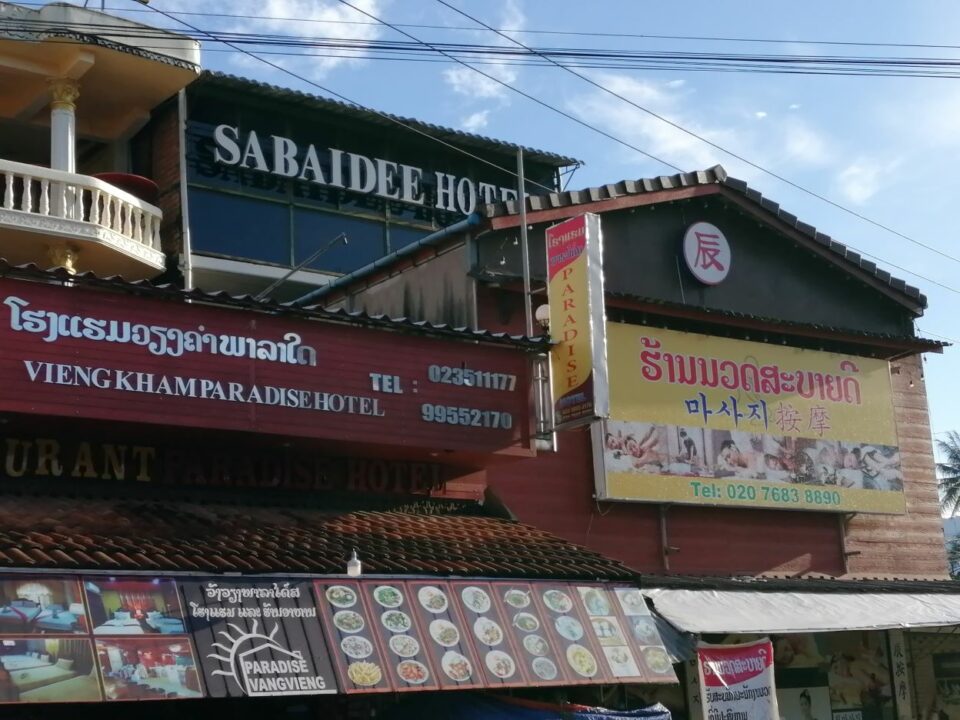
During Covid, I was the only resident at Sabaidee hotel, in the center of Vang Vieng, on dusty side street where featherless chickens and stray dogs roamed. The manager was a drop out monk, Cheng, who taught me how to find peace in the mist of a storm. No, we didn’t meditate, we’d grab a Beer Lao, head to the roof and watch the sunset every evening, thinking that the world was coming to an end.
Once I relocated back to the states during COVID, I wrote a letter to send to Cheng. It took two years before I could send it because the Laos Postal service wasn’t accepting international mail.
This week, three years later, I find myself on those Laos streets again, the borders now open, the air filled with waifs of fried onions and dust. I returned to Vang Vieng to grieve–not to celebrate–sorta like when you visit a family cemetery to plant flowers. I can’t explain what I mean by that statement, but I just had to come here, to see the mountains, feel the grime on my shoes, the blasting sun in my eyes, to see if what was is still is, from the corner crepe shops to the stray dogs and free side of flies with every meal.
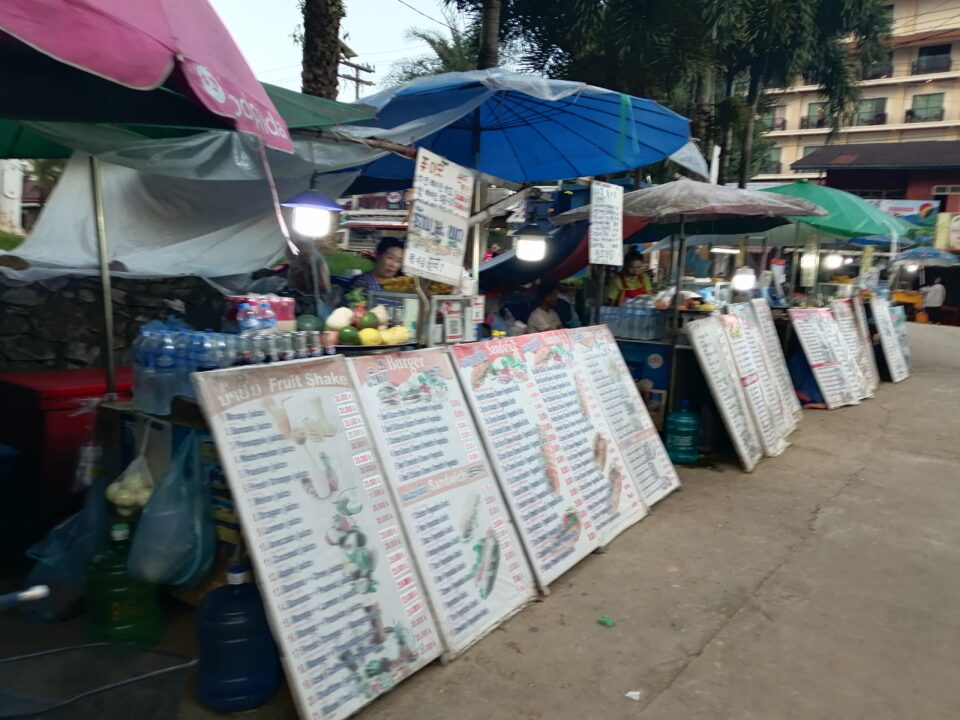
Arne, a transplant from Norway who is the town’s Barista at their alternative to Starbucks, said Covid was rough. The city ran out of money. People died and drugs were rampant. His wife took it hard and went a bit off the deep end, talking to invisible customers and laughing at their jokes, but not his.
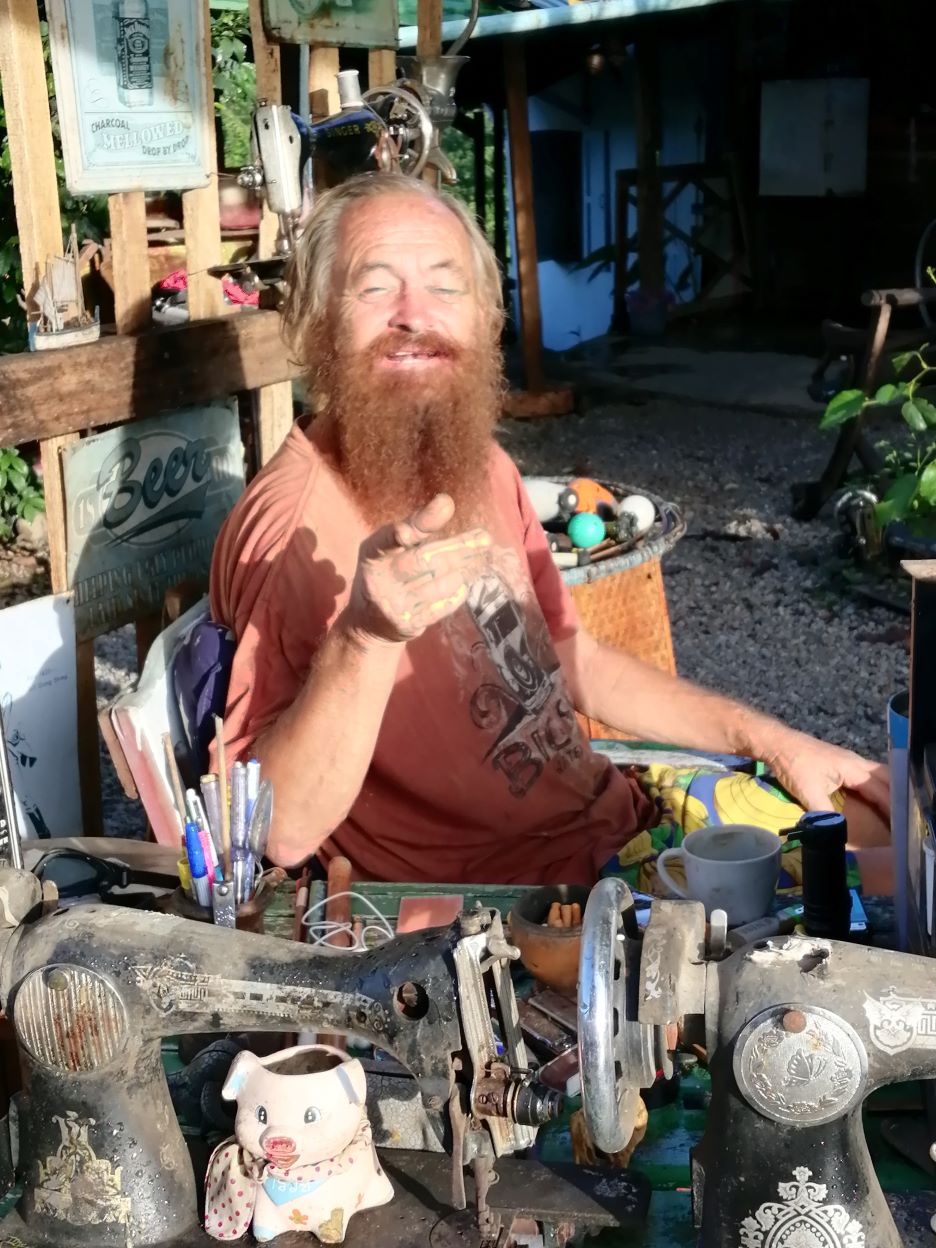
Arne told me my name, Ginger, is pronounced KING in Laos. That’s better than what Sinsabaugh means in Chinese. If mispronounced a wee bit, my family moniker could sound a lot like the Chinese numeral slang-348 (sǐ sān bā (死三八) / meaning, die you stinking bitch!
A photo of his Vang Veing alternative to Starbucks is below. Don’t expect to get your name written on your cup, no matter what it means– but do expect a heckova view.
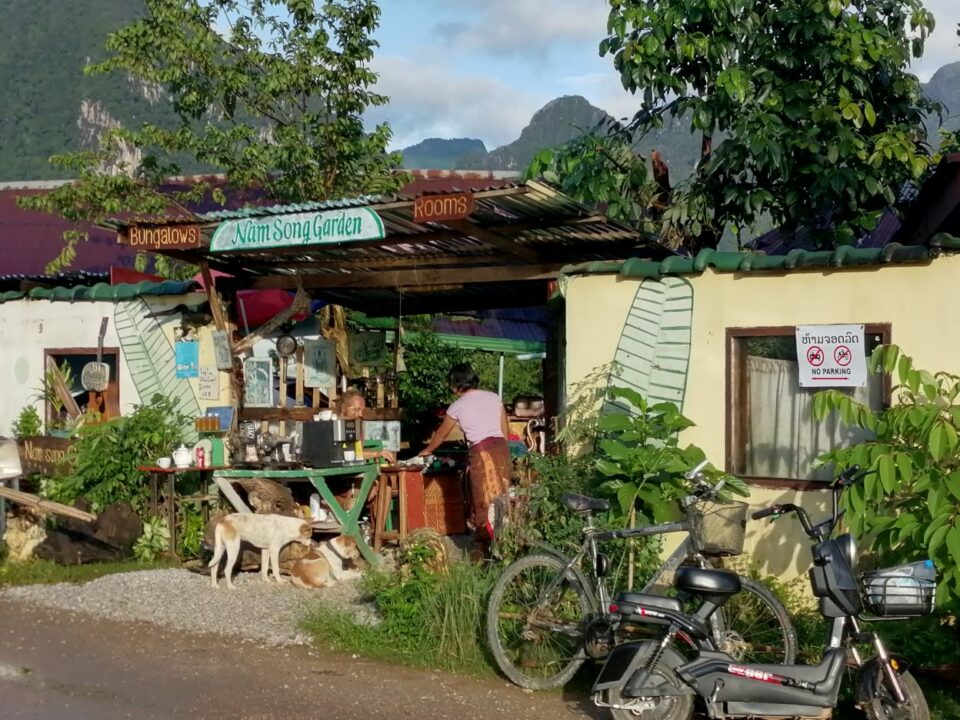
Arne also fixes sewing machines so be sure to make room for one in your backpack.
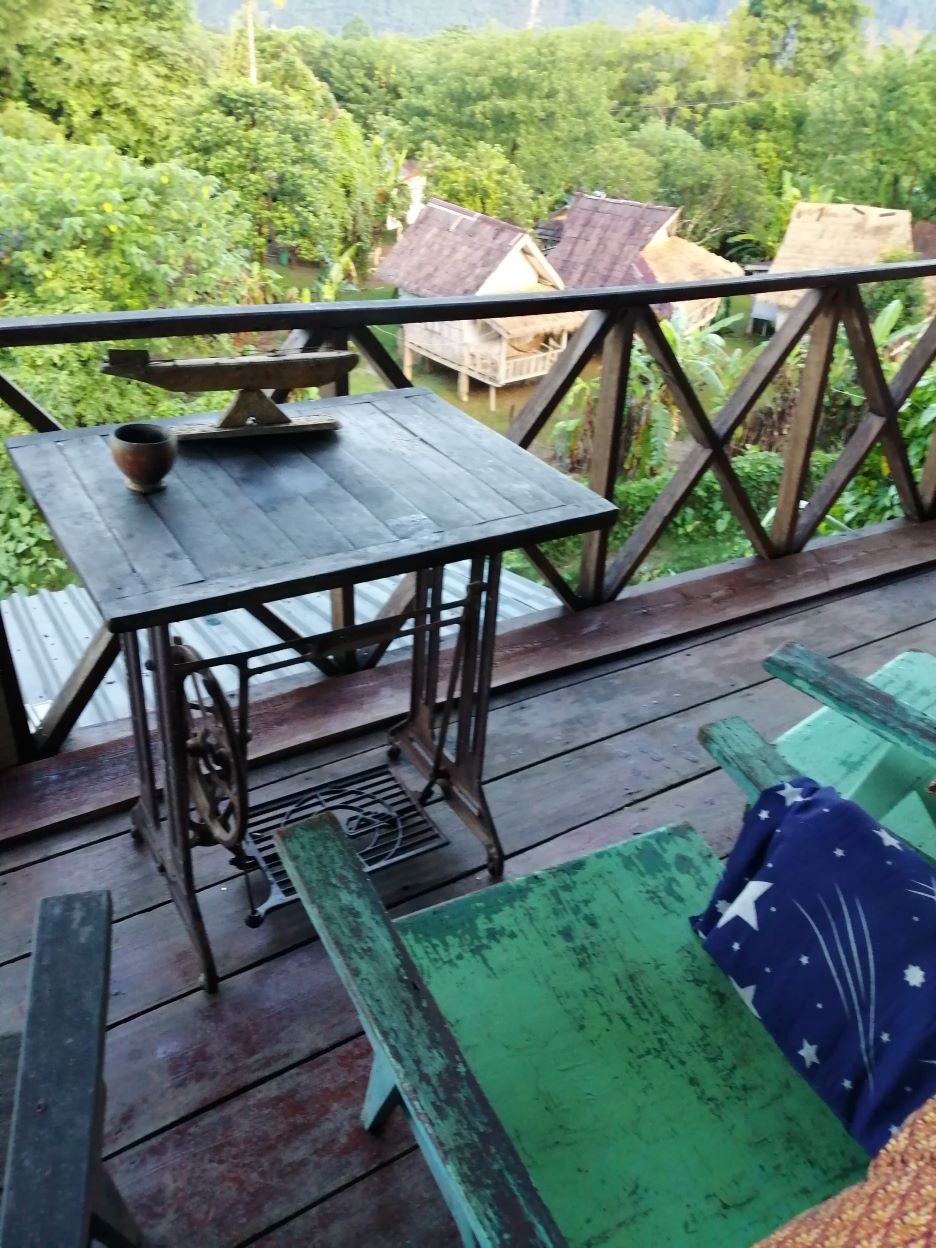
Vang Vieng also has their own version of Uber. It’s about two bucks to get to the train station. Unlike the rest of the country, the bullet train, created in partnership with Chinese investors–is one of those sleek bullet trains..
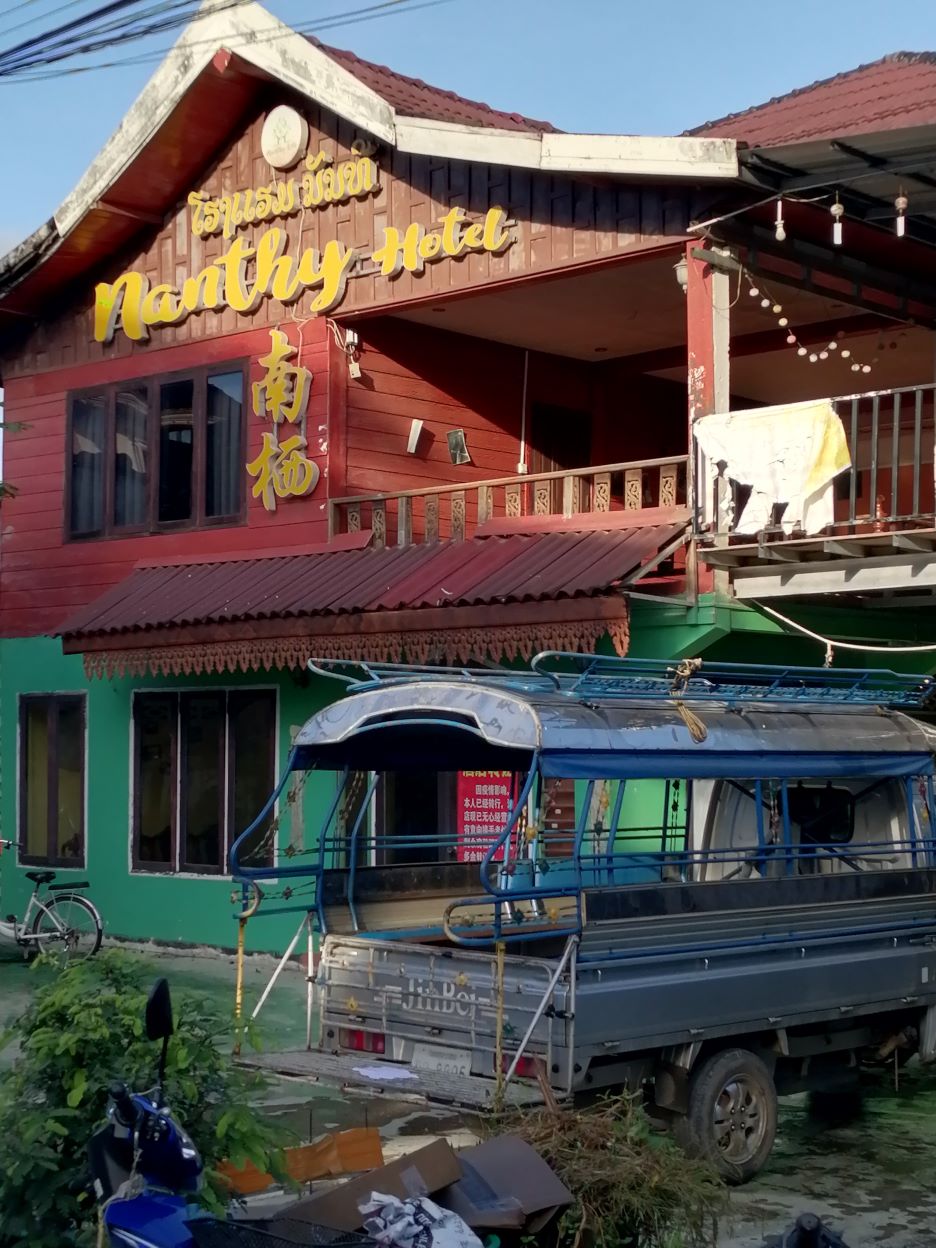
While teaching online three years back, I would hang out at the Luang Prabang bakery, drink a pitcher of coffee and teach. I’d also indulge in their chocolate lava style donut holes. I can look at the skittle like chairs but do not want to sit down, fearing tears will flow or something worse–that I’d eat a small pyramid of sweets and end up in a sugar coma.
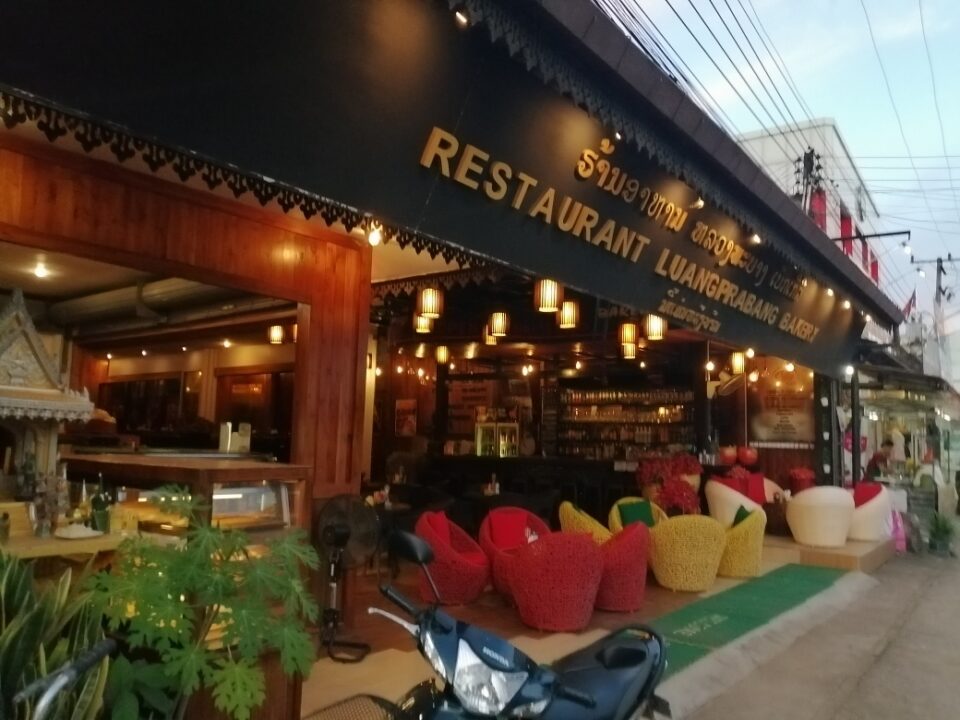
Laos is poor. Even in good times, street markets are full of creatures that would make members of PETA’s skin crawl. Squirrell. Frogs. Chickens with more bones than meat, but lots of fresh honey so you can taste the beauty of the country, unlike Vietnam honey, which still has a tinge of Agent Orange.
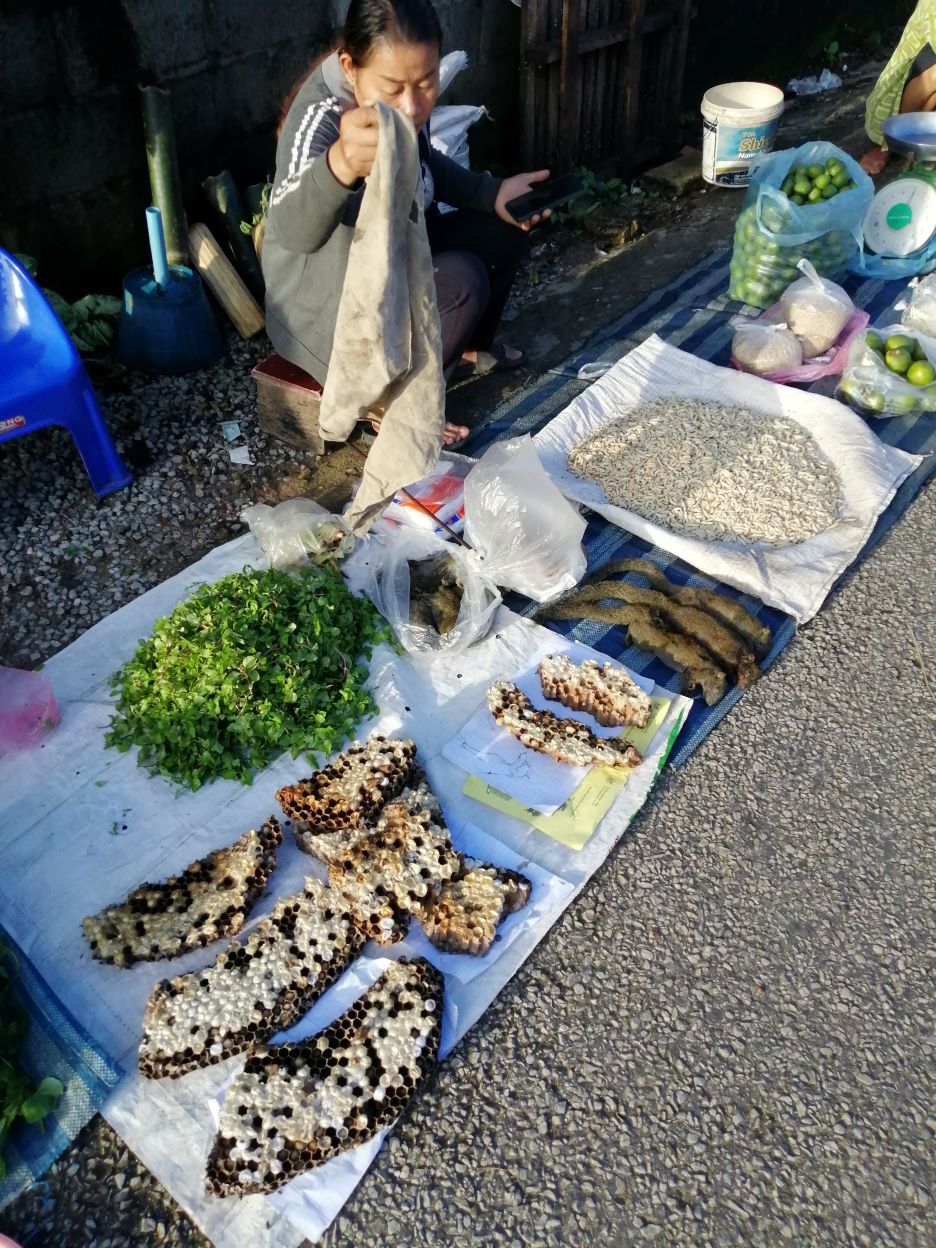
The market is so colorful, and a lot leaner than the Chinese counterpart. Their selection of produce is laid out on the sidewalk, which is common in many SE Asian counties.
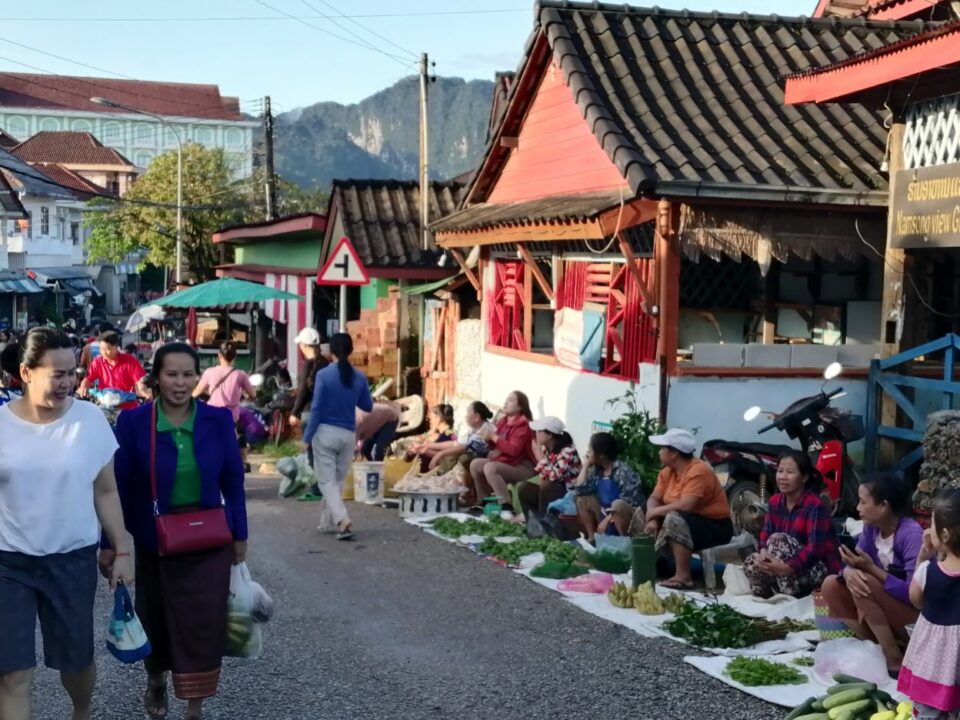
This old lady was throwing rocks at a stray dog that was taking a dump in the middle of the street. Too bad she doesn’t pitch for the Cubs.
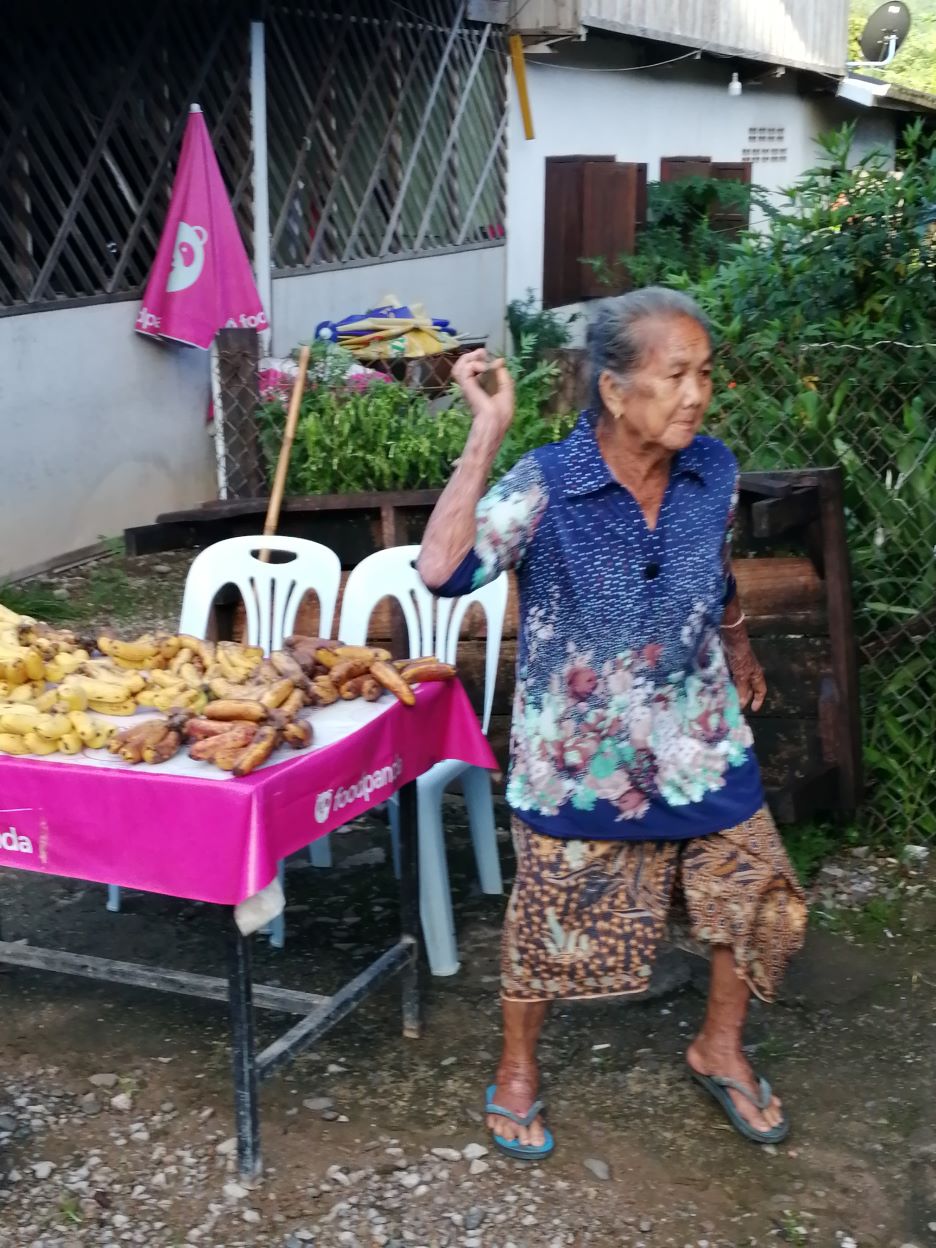
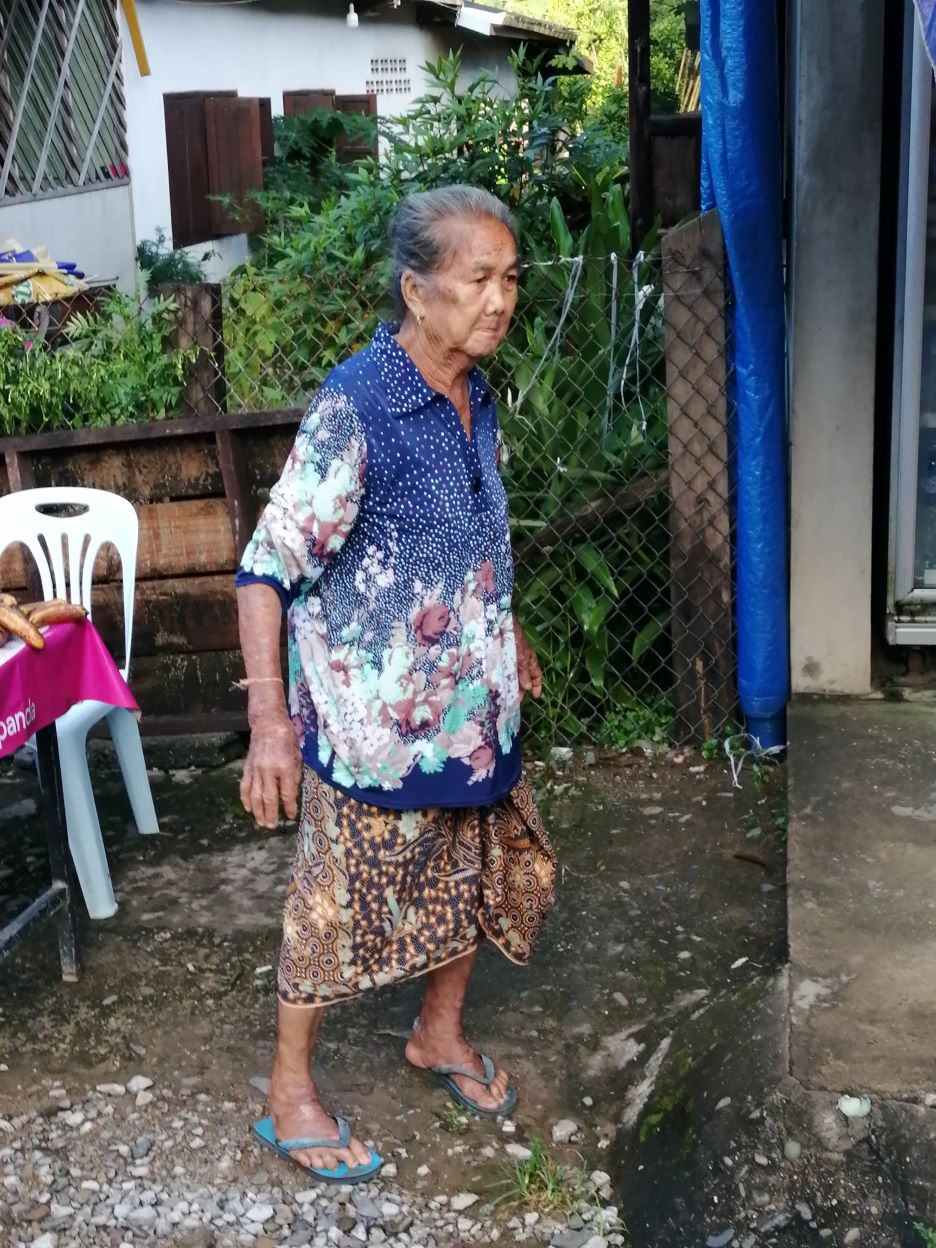
Here’s a dog that go away.
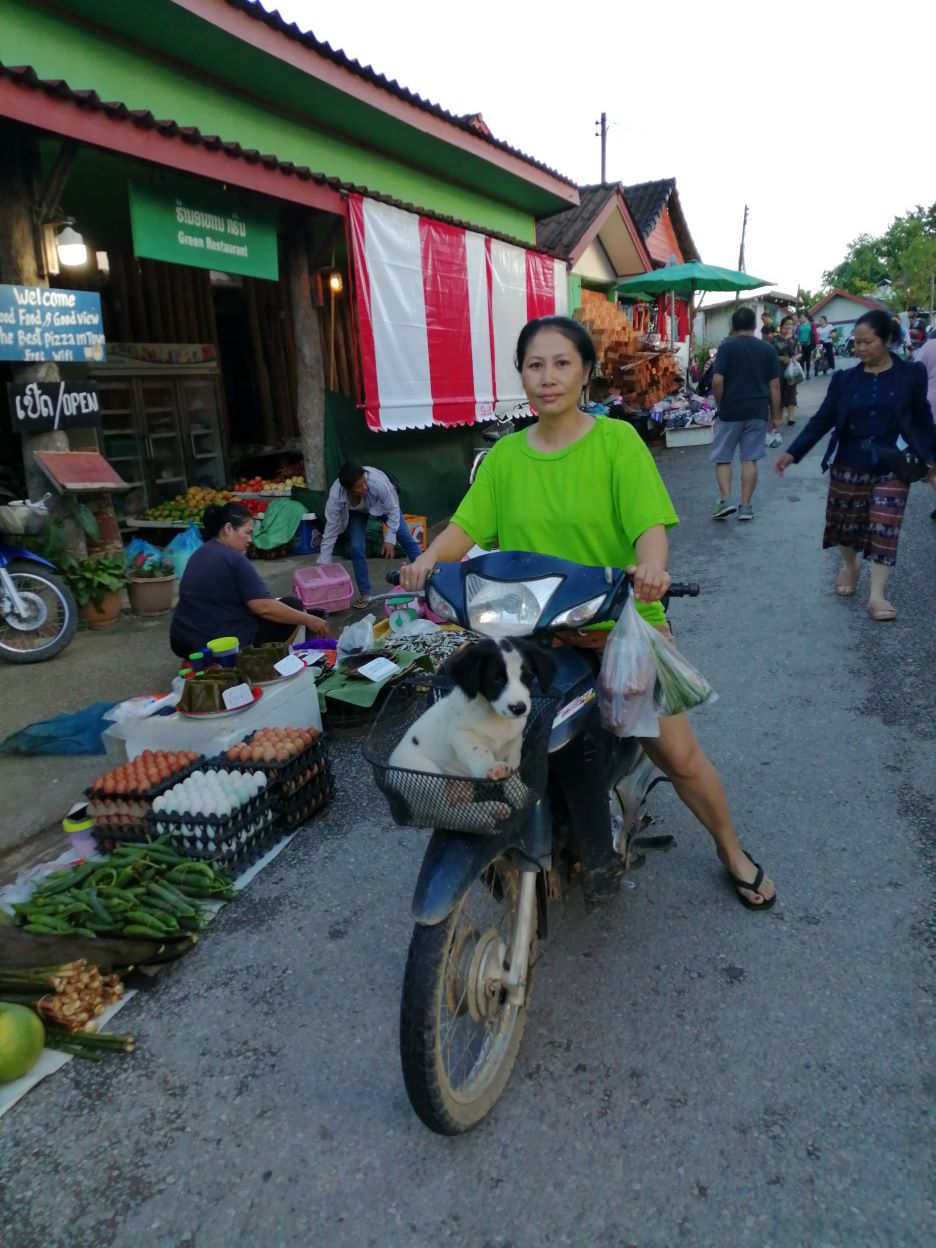
In the three years that I haven’t been here, Vang Vieng really hasn’t changed other than the speed train, which I took from the sleep capital of Vientiane. Vientiane is still abandoned, four out of five shops closed, but my favorite hole-in-the-wall eatery survived. I indulged in my favorite fresh spring rolls, this healthy half platter about a buck.
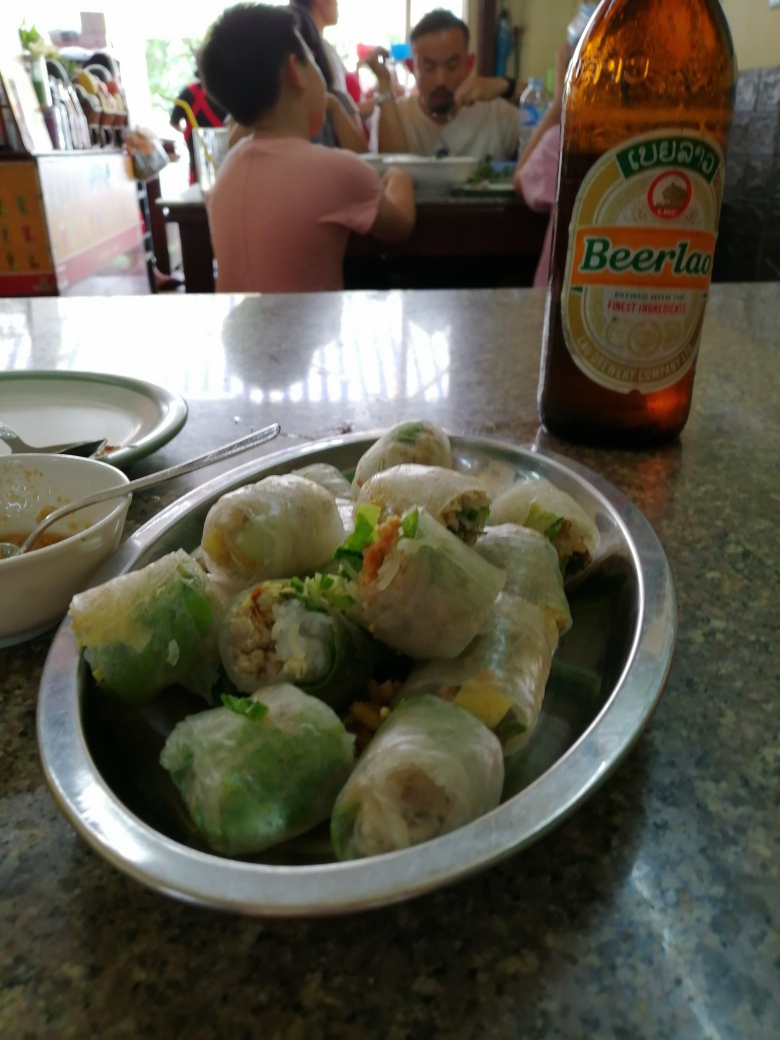
But a Starbucks did come to Vientiane. Well, there goes the neighborhood.
Tomorrow, instead of grabbing an innertube to meander down the river, I might just grab my pen and write.
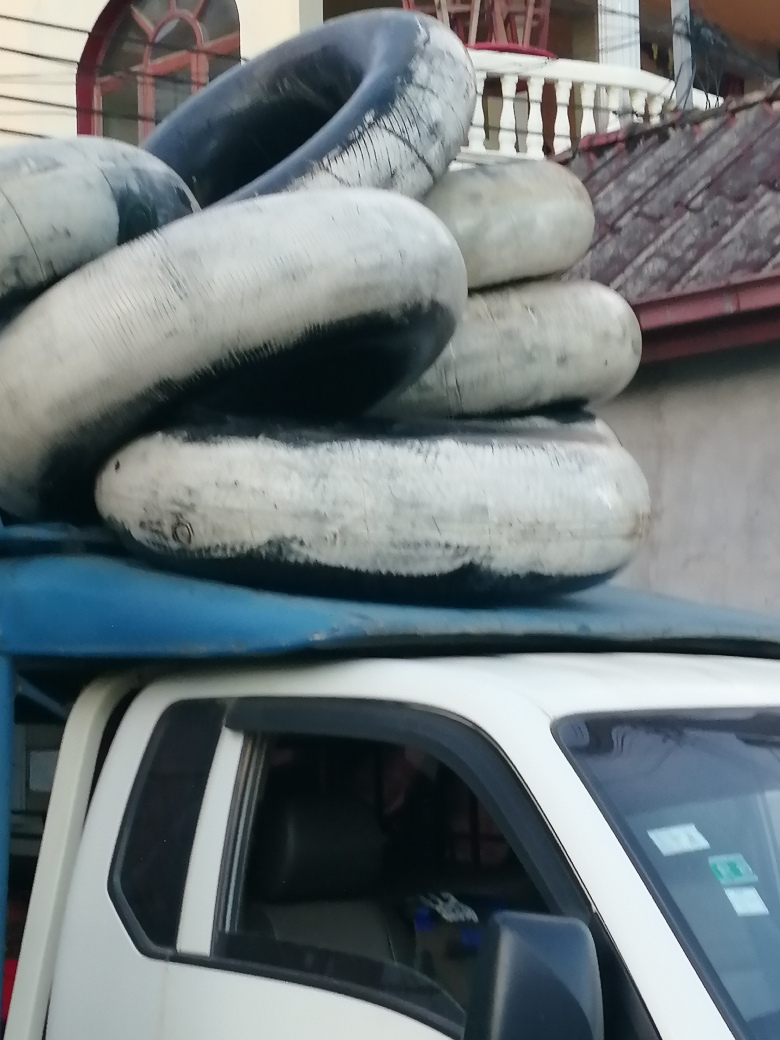
Then on Tuesday? Off to Luang Prabang.

